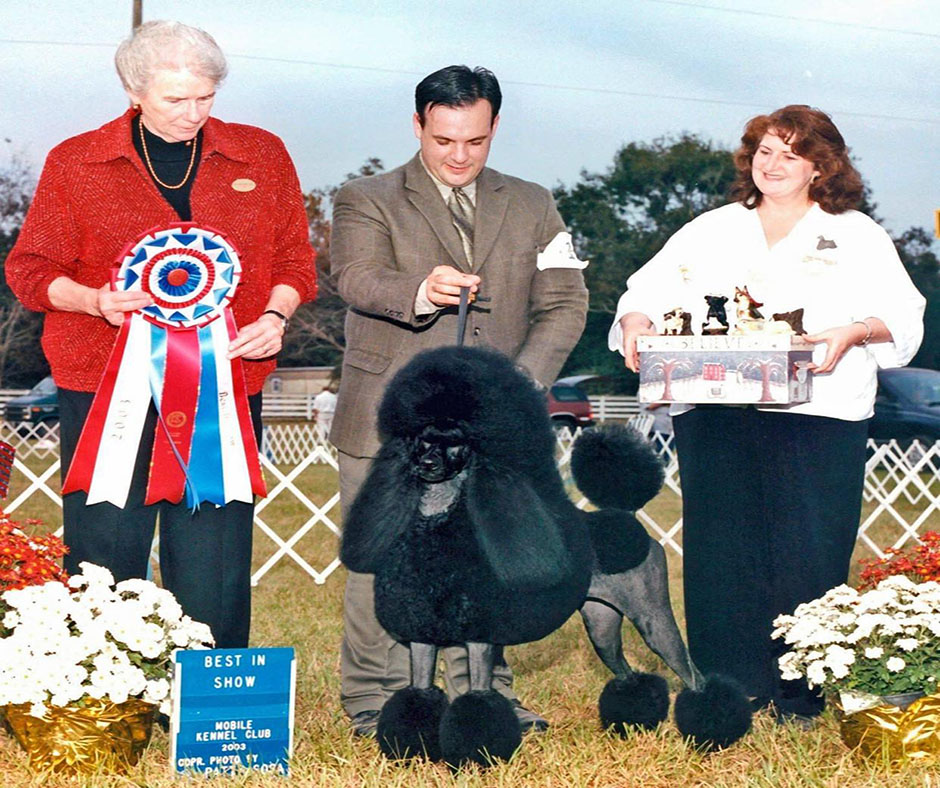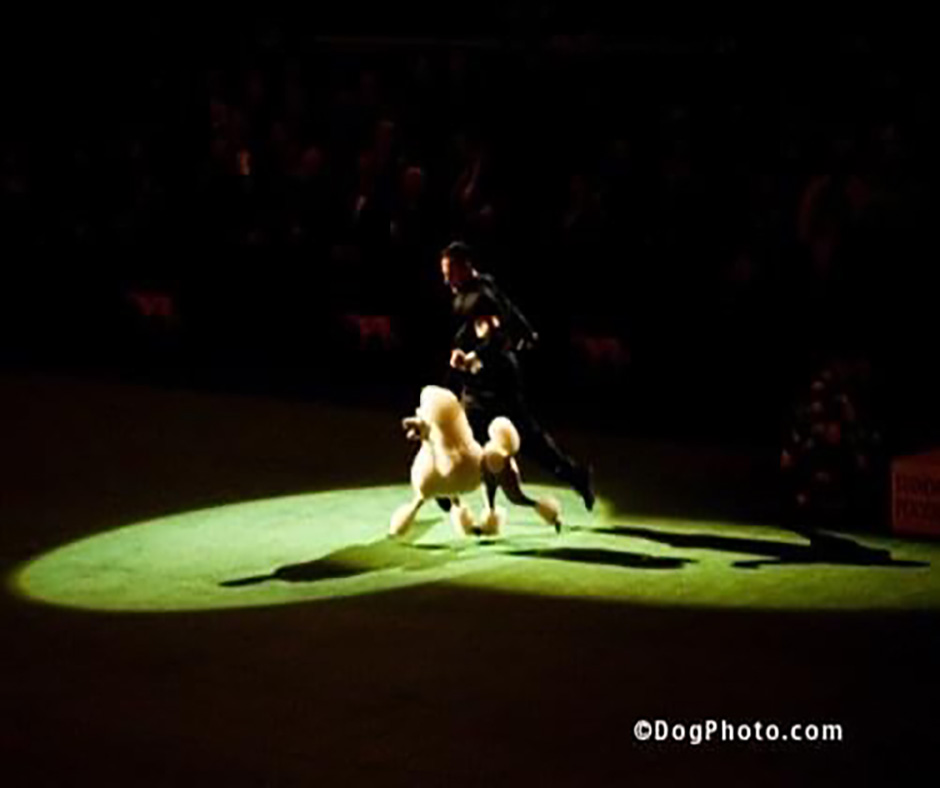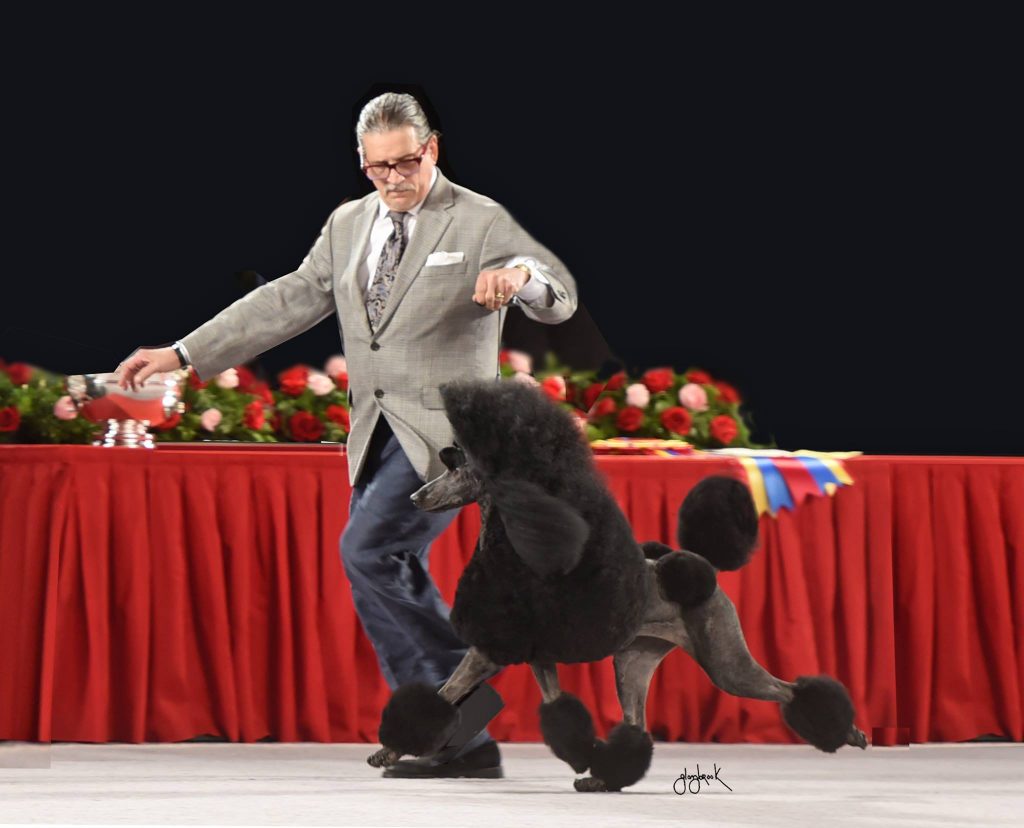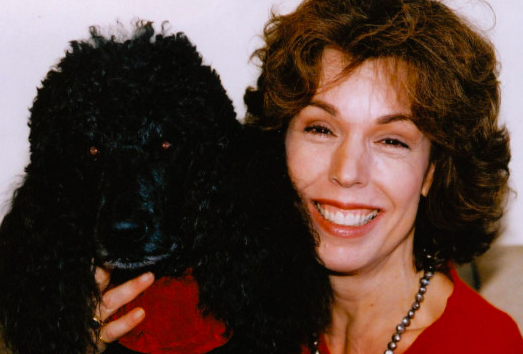530 – Poodles, Professional Handlers and Public Image
Poodles, Professional Handlers and Public Image
Christian Manelopoulos is back with host Laura Reeves for more Pure Dog Talk on Poodles, Professional Handlers and the sport’s Public Image.
“I think really great people are very generous with their time and advice,” Manelopoulos said. “In the end, the thing we all struggle with is having time to do things. And so when people are generous with that time, you really have to soak that in. But the really great people are willing to do that.
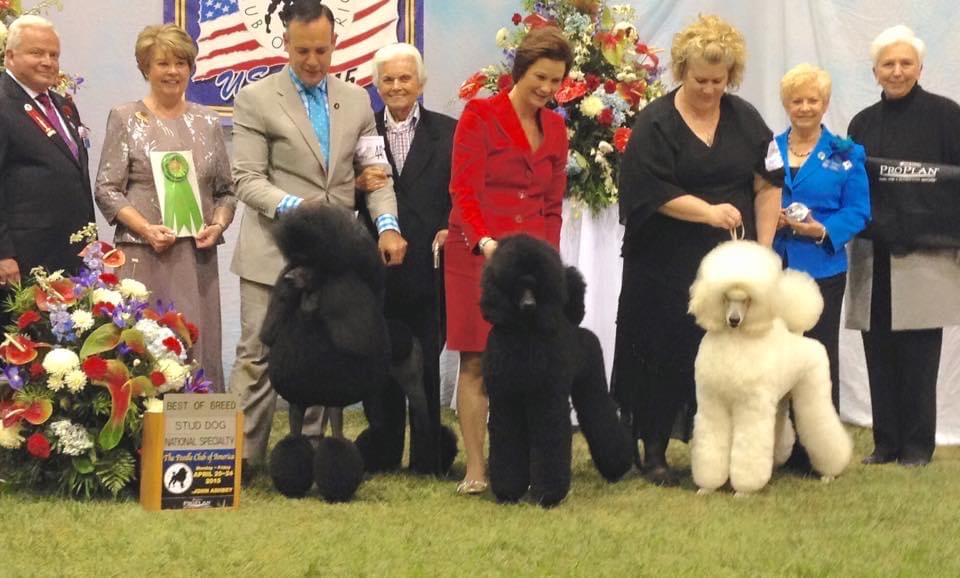
Winning the stud dog class at PCA.
“People think of handlers in one way and breeders another way and that they are two separate things. But they’re very dependent upon one another. I do think people don’t realize how much professional handlers actually influence breeds positively. We always get the negative….
“We’ve seen a rapid decline in big breeding kennels. There’s still a lot of people that breed but when you breed one litter a year or one litter every two years, it’s really not enough. As dog show people, we need to pay a little bit more attention to these kinds of things. We do need people to breed litters of dogs. There’s just not enough dogs out there for the people that want them, especially purebred dogs. But we need to market ourselves correctly and we need to promote the breeds, the dogs, in the correct way.
“I mean, we can’t be elitists. When people come to dog shows and you’re rude to people and you talk to them like they’re idiots, they’re not going to want to come back. We need to be encouraging to people about the dogs. We need to breed healthy dogs. People buy purebred dogs because they want dependability. It’s like what Apple is. You buy an iPhone because it works. You buy a purebred dog because you want to get a poodle that looks like a poodle, acts like a poodle, has a temperament and then is hopefully healthy.
“The first poodles that I bred, I have none of that bloodline in my lines today because of health reasons. So you can’t be afraid to start over. You have to eliminate dogs from your breeding programs and move on. That doesn’t mean you need to eliminate all of them. You have to be diligent in what you do and examine correctly ‘what I can work with, what I can’t work with.’
“We need to promote a positive image of the sport. We see people flying with their fake service dogs and they post videos on Facebook and people talk about how cute it is that you are committing a federal crime. I don’t think that that’s the right message we should send people. You could see why that would come off the wrong way to the general public. We need to self-examine.”
529 — Christian Manelopoulos: “I’m Going to America”
Christian Manelopoulos: “I’m Going to America”
Professional handler Christian Manelopoulos joins host Laura Reeves for part one of a wide-ranging conversation about professional handling, working as an apprentice, the toughest dogs to trim and the challenges of moving to America to begin his career.
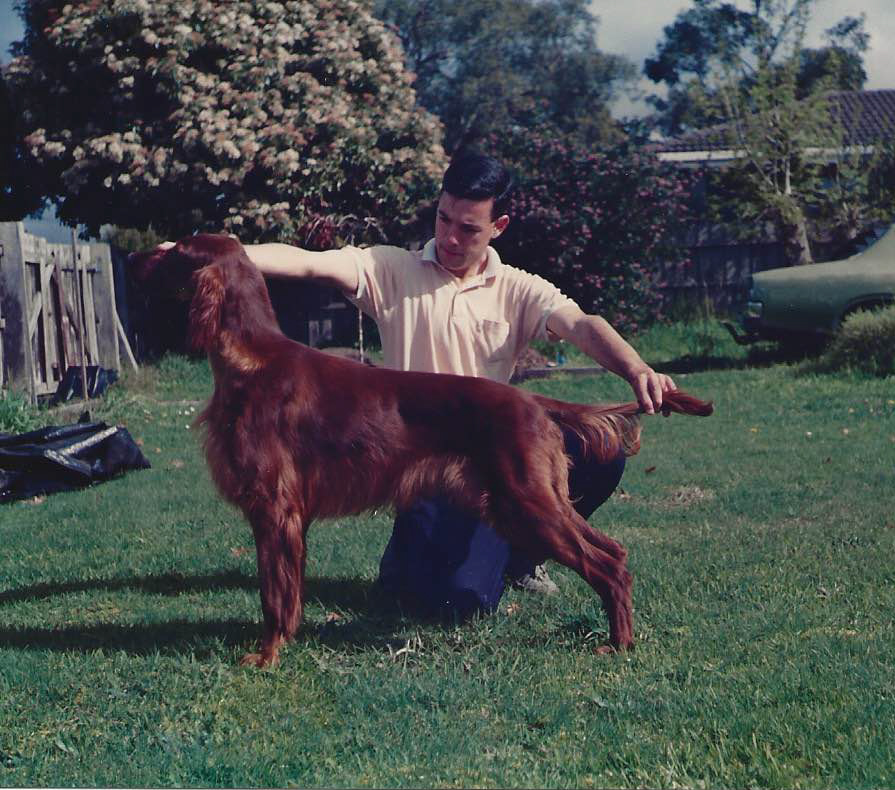
Christian with his first show dog, Taraglen Nicholas
Manelopoulos started in purebred dogs as a teenager in Australia after a knee injury ruined his cricket game. He eventually worked his way up to earning expense money showing dogs for the president of the Victorian Kennel Association.
But what he really wanted to do was move to the US and show dogs like the pictures he saw in Kennel Review of Frank Sabella’s poodles.
So, when he had a chance to work for Joe and Pauline Waterman in Southern California in the early 1990s, he jumped at the chance.
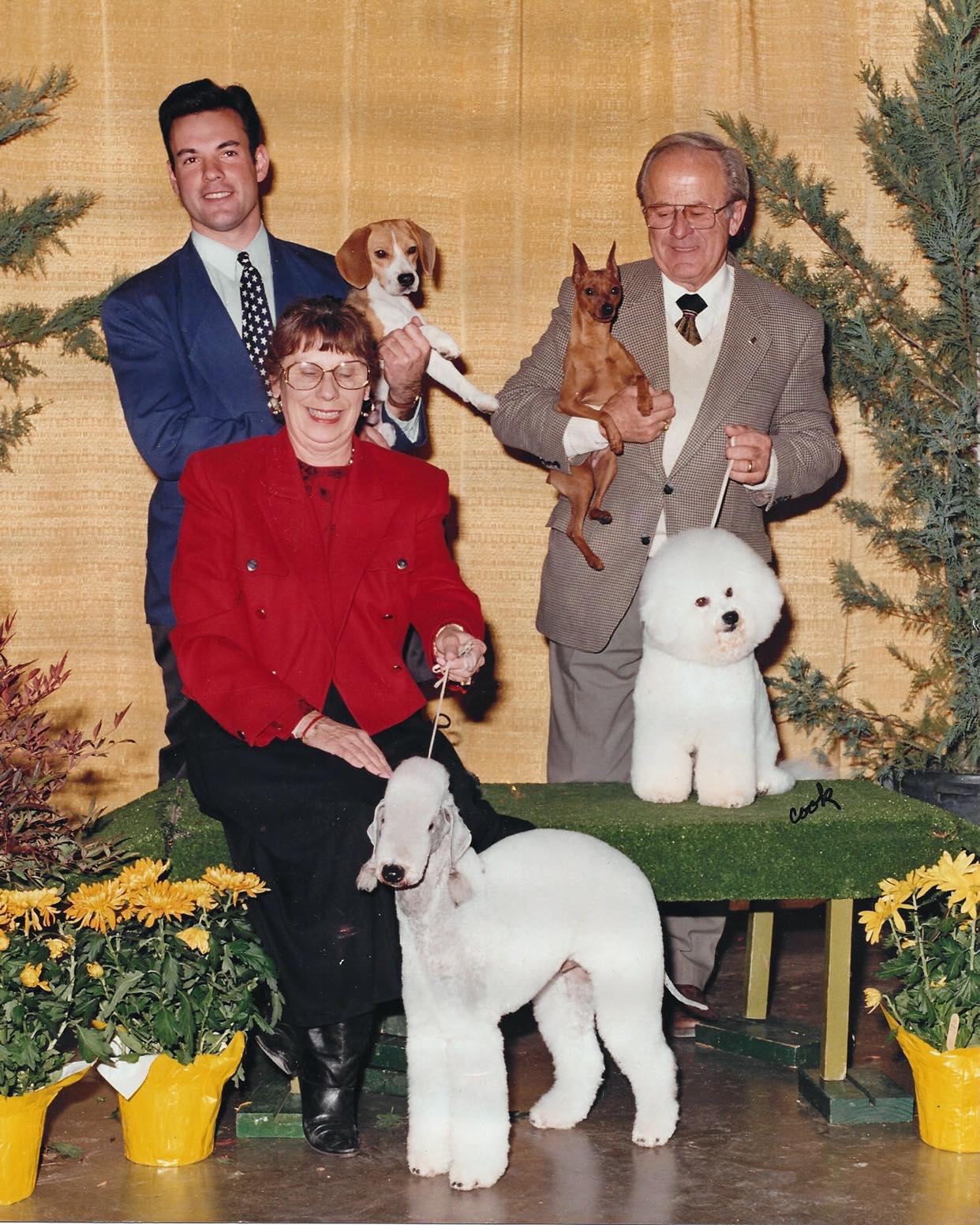
Christian in a team photo with Joe and Pauline Waterman during his apprenticeship.
“Going to Joe and Pauline was fantastic because being in Los Angeles, Dick Beauchamp and Frank Sabella would call the kennel. At that time (the Watermans) were still breeding Bichons a little bit. I would study the pedigrees of all the Bichons and all the dogs. I knew their pedigrees better than they did. I was so eager to learn at that time and so that was a tremendous experience.
“The dog show world in Los Angeles in the early ‘90s was a world of its own in that sense. Corky (Vroom) was like the king and then Bruce and Gretchen (Schultz), and then Joe, so it was a tremendous learning experience.
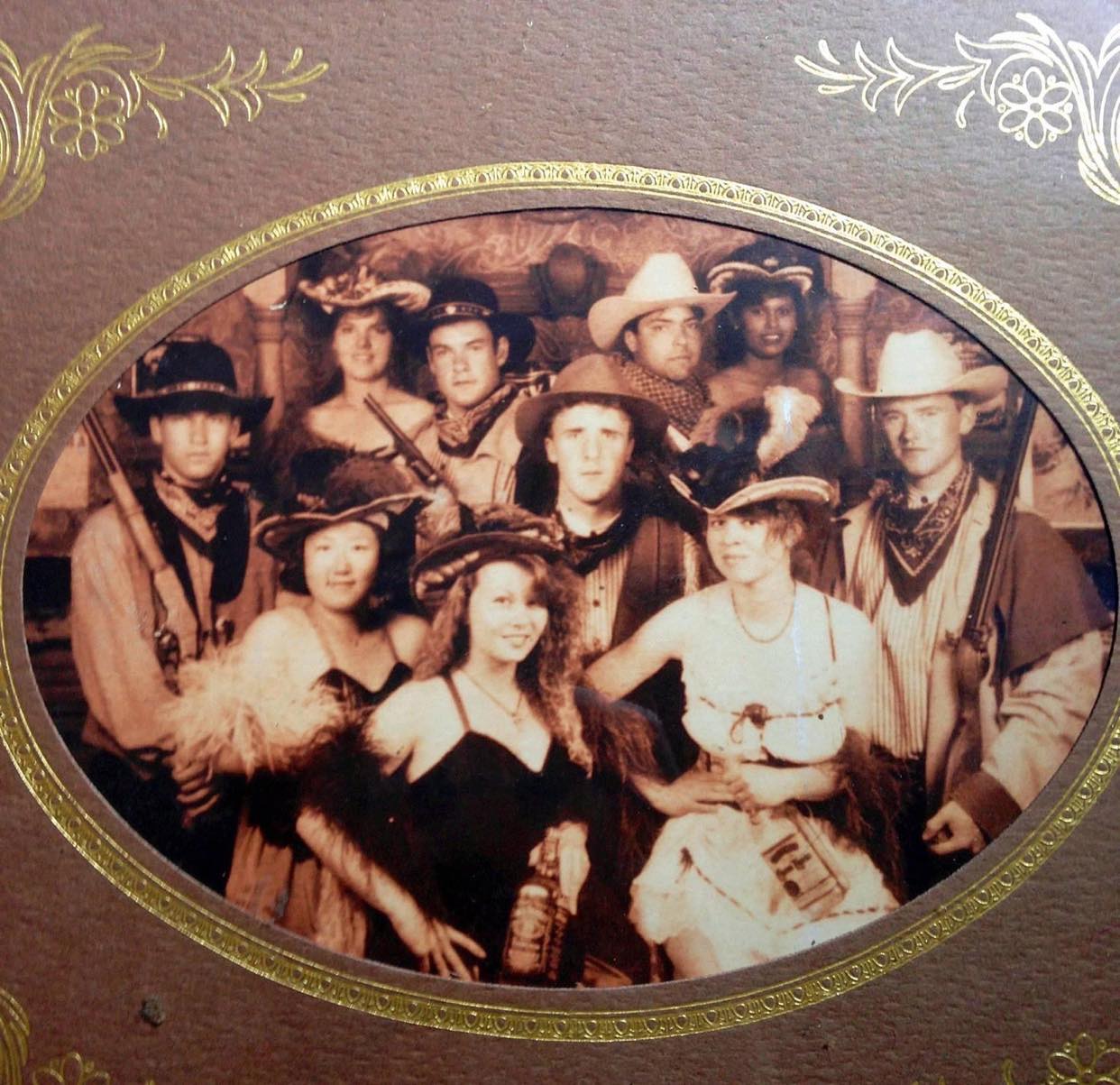
With other assistants in Los Angeles, Jason Hoke, Tracy Szaras, Andrew Peel, Doug Carlson, Jr Alacantara, Amy Thurow.
“I tell people it was different also because we didn’t have as many dog shows. Most of the shows were only Saturday and Sunday shows. So, all of the assistants, Woody’s assistants and Bruce and Gretchen’s and Corky’s, we would often get together on Tuesdays and go and do things. So it was a very communal thing.
“Pauline, Sue (Vroom), Gretchen and Bergit Coady, they were very motherly influences on a lot of the (dog show) kids in the LA area. Especially someone like me, I came from another country, my family was thousands of miles away, so in many ways these women replaced my parents for me. I’m very appreciative to all of them. Sadly most of them have passed away now, but it was definitely a different time.
“I groomed all the time. I mean, that’s the story of my life for 30 years. I tell people that I started working 15 hours a day and here I am 30 years later, I still work 15 hours a day. Everyday. It hasn’t changed.
“You’re very much an entrepreneur in this business. You’re self-employed, so the businesses is you. When you start out, you go out from being an assistant, you go out to become a handler, you’re literally saying ‘for the next 15 years of my life I am gonna work every waking minute of every day. I am going to forego going to people’s birthday parties and weddings and things like funerals and baby showers. I will regret many of those things.’
“But those are the compromises you make to be really successful. Now people can say ‘well, I want a work life balance.’ Those people either generally come from wealthy families or they’re not that successful. The most successful people, time and time again, that is their story. If you think it’s going to be different, then you should probably try something else, ’cause it’s not.
“You have to run it as a business. A lot of kids, they think ‘oh, I wanna get a big winning dog and then they travel around (in) a big truck, with a big mortgage for that truck, and make no money. They do some winning and then it’s all over. The most common issue dog handlers run into is tax issues. You’re self-employed, you don’t save enough money for taxes and things like that. Probably lesson number one I tell everybody get a great accountant.”
362 — Joseph Vergnetti: the Art and Science of Dog Breeding
Joseph Vergnetti: the Art and Science of Dog Breeding
“Breeding is Like a Recipe, You Need All the Ingredients On Hand”
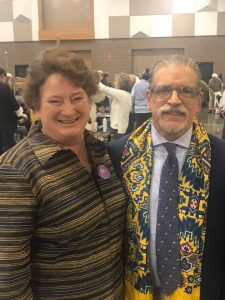
Host Laura Reeves and Joseph Vergnetti in Puyallup, Washington.
So says Joseph Vergnetti, master breeder at Dassin Poodles. Vergnetti talks about the presentation, line-breeding and outcrosses, and the differences in the varieties.
In partnership with Ellen Charles, Vergnetti has been voted Breeder of the Year twice by his peers and was selected Non-Sporting breeder of the year by the American Kennel Club. They have produced more than 300 champions across all varieties of poodles.
Starting Young
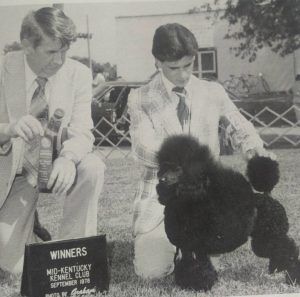 Starting with a toy poodle that he learned to trim by himself at 10 years old, Vergnetti has successfully bred Boxers, Great Danes and American Foxhounds as well. He apprenticed with professional handlers in his teens, including Ted Young Jr, then went to work for Wendell Sammet, Ale Kai poodles.
Starting with a toy poodle that he learned to trim by himself at 10 years old, Vergnetti has successfully bred Boxers, Great Danes and American Foxhounds as well. He apprenticed with professional handlers in his teens, including Ted Young Jr, then went to work for Wendell Sammet, Ale Kai poodles.
“Wendell was hardest worker in the world. Everything was very precise,” Vergnetti said.
It was during this late ‘60s, early ‘70s time frame, that the trimming and presentation style of poodles changed dramatically, Vergnetti said, with the “spray up” becoming more and more important.
“Today it is a little over-done,” Vergnetti said. “They are almost a caricature, way over the top. Hairspray and excessive presentation has taken over. In a way, I think poodles are a victim of their own beauty. There is a normal dog (construction) under all the hair. That’s very important.”
Differences in varieties
Miniature poodles are Vergnetti’s favorite, he said, adding that “Miniatures are smart. They’re the perfect size. They know what they like and what they don’t.” He noted that miniatures often have more work ethic than standards. They were originally truffle dogs and circus dogs. “They don’t take much (grief) from anybody.”
Breeding planning
When breeding dogs, you need to have all ingredients, like a recipe, Vergnetti opined. The Dassin program generally maintains seven or eight stud dogs and an average of 10 bitches… “It’s important to have the dogs you want in front of you,” he said.
The Dassin Farms facility features a four-story-tall barn for a kennel building, Vergnetti said, with 50-60 runs and 72 windows all around.
“We can see the dogs all day, every single day. We take hair off the puppies to see the bodies. You can see temperament. We evaluate them every day on their own,” Vergnetti said, which he adds is how they make decisions about which dogs to keep.
356 – Soul Dog: Investigative Journalist’s Poodle Journey
Soul Dog: Investigative Journalist’s Poodle Journey
Emmy award-winning investigative journalist Elena Mannes shares her story of the journey on which she embarked with her first dog, a Standard Poodle.
Soul Dog – A Journey into the Spiritual Life of Animals chronicles Mannes’ determined quest to harness her inner dog whisperer by learning to decipher the unspoken language present in every animal-human relationship.
“I brought Brio home… and it wasn’t really going according to plan. I really just thought I would get trainers and support and it wouldn’t really change my life to have a puppy,” Mannes said with a rueful chuckle.
“One time, I had him in Central Park. I had started to have him off leash… he would take off and not come back when I called. I was walking backward, screaming at him to come. All of the sudden, there was no ground under me… I stepped off the edge of the boat pond and fell in…. Brio eventually came back and just stared at me.”
Skeptic to believer
“I felt sort of desperate. I didn’t talk dog. I heard about animal communicators, but I was a real skeptic. I’m a TV journalist, I don’t like woowoo things.
“(Brio) changed me in so many ways as the years went by and the connection became so deep and really life changing for me,” Mannes said.
Mannes also addressed her decision to choose a purebred dog.
“I respect people who rescue, but in my situation at the time I really didn’t know enough. I had a sense of Standard Poodles that they were so smart. I was scared to death (of adding a dog to my life),” Mannes said, adding that the predictability of a purebred dog helped provide some comfort in this decision.
***
Elena Mannes is a multi-award-winning independent documentary director/writer/producer as well as an author. Her first book, The Power of Music: Pioneering Discoveries in the New Science of Song, is published by Walker Books/Bloomsbury USA (May 31, 2011).
Her work has appeared on both public and commercial television. Her honors include six national Emmys, a George Foster Peabody Award, two Directors Guild of America Awards, and nine Cine Golden Eagles.
Mannes developed and created a primetime PBS special, The Music Instinct: Science and Song,a co-production with WNET/Thirteen.
Mannes productions include the feature documentary film Amazing Grace with Bill Moyers (PBS) which won the Directors Guild Award as well as an Emmy for directing. For ABC, Mannes has produced a special with Diane Sawyer The Amazing Animal Mind, exploring the intelligence and emotions of dogs and other animals, as well as other ABC hours including Ground Zero with Peter Jennings which won an Emmy for best Historical Program.
Mannes has also produced and directed documentaries for CBS REPORTS and segments for 60 MINUTES and PRIME TIME LIVE (ABC).She worked with George Lucas to develop a television project incorporating documentary and dramatic sequences.
Mannes is a member of one of the first families of American music. Her grandparents founded the Mannes College of Music in New York City; and her great uncle, Walter Damrosch conducted the Metropolitan Opera and instigated the building of Carnegie Hall.
314 – Dog Shows Through the Eyes of Newbies
Dog Shows Through the Eyes of Newbies
I was honored to visit with four brand “newbies” recently in a panel discussion format. These folks shared truly valuable information about what got them started, what they love and even what they don’t.
Huge thanks to listener Dr. Clifton Jamil Kenon Jr whose idea this was. The announcement on PureDogTalk’s FB page garnered 147 comments from folks who were so excited to share their experiences. I hope to make a continuing series of these types of conversations because the stories I received were so amazing.
Kenon, Kristin Eberly, Neil Trilokekar and Kayla Croteau represent a wide spectrum of the dog fancy. They share their fascinating journeys into the sport of purebred dogs, talk about mentors, what they love and what has been frustrating in each of their individual experiences.
Mentorship
“Meet people where they are,” Kenon advises mentors and would be mentors. “Everyone comes to the table with their own goals. This is a sport that lends itself to diversity.” Kenon’s mentor, Susan Giles, visited with me on the podcast just recently.
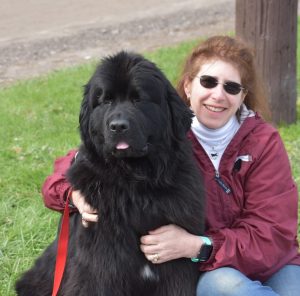
Kristin Eberly
The best help Eberly found is from her handling class instructor, who she says offers “criticism wrapped in something positive.”
Trilokekar said his mentors have encouraged him to study and think critically. “They share their knowledge without expecting me to be obedient,” he noted.
Croteau said her mentor is always open to the silliest of questions and is always positive.
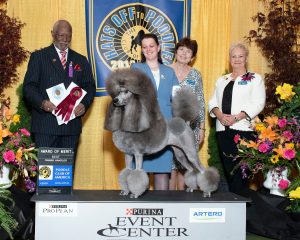
Kayla Croteau
Strongest encouragement
- “Set your own goals,” Kenon said. “Celebrate the wonderful people who help you get there. Ignore the people who want sink everybody’s ship. Don’t go broke doing it. Have fun.”
- “Don’t be afraid to ask for help,” Eberly offered. “Long time people in the breed can be intimidating. Those people will help you if you just ask.”
-
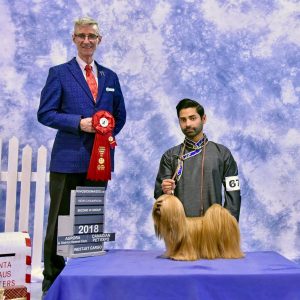
Neil Trilokekar
“Find your fascination,” Trilokekar encouraged. “So many facets you can be engaged by. Learn about history, and heritage of your breed. Go do other things with people when you’re at a dog show. Build a relationship. Never stop learning.”
- “Coming in it was pretty terrifying,” Croteau opined. “Remember we’re all here because we love the dogs. Set small goals. Don’t just come to the show, show and go home. Hang out. Have an open mind and big ears.”

